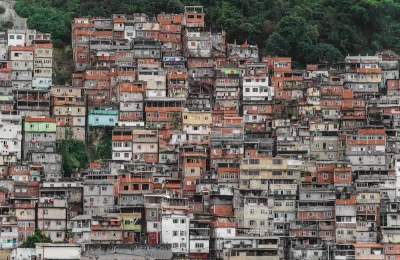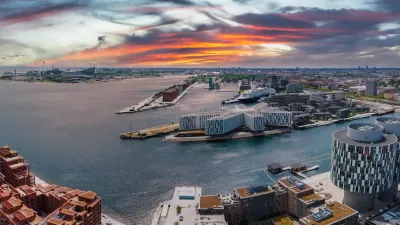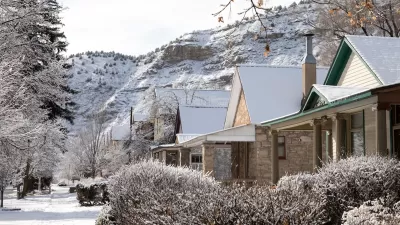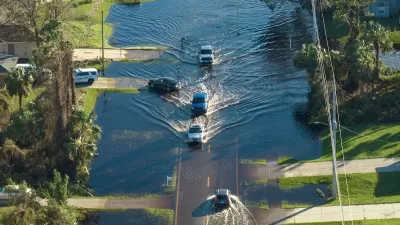Ensuring that housing, including in informal settlements, is safe and healthy for its residents is a key tool in the fight to build more sustainable and equitable communities in the face of climate migration.

As climate migration displaces more and more people around the world, building more resilient housing will become key to managing urban growth and shifts in population centers, writes Jonathan Reckford in Time. “According to the United Nations Environment Programme, the built environment accounts for 21% of global greenhouse gas emissions, with residential buildings responsible for 17% of the total emissions. As the planet warms and climate disasters intensify, housing’s role becomes even more critical—not only in reducing emissions but also providing stability and safety to those most affected.”
Housing-centric approaches that adapt communities and households to climate impacts, including comprehensive slum upgrading, are essential for climate actions and advancing sustainable development goals. These strategies not only address climate resilience but also provide pathways for improved health, education, and economic outcomes.
According to Habitat by Humanity research, “GDP and income per capita would increase by as much as 10.5% in some countries if housing in informal settlements were upgraded at a massive scale, and as many as 41.6 million additional children could be enrolled in school.” For Reckford, addressing the needs of people living in informal settlements — often without access to safe infrastructure or clean water — is a crucial part of building more sustainable and equitable communities.
FULL STORY: Why Housing Is a Frontline Defense Against Climate Change

Trump Administration Could Effectively End Housing Voucher Program
Federal officials are eyeing major cuts to the Section 8 program that helps millions of low-income households pay rent.

Planetizen Federal Action Tracker
A weekly monitor of how Trump’s orders and actions are impacting planners and planning in America.

Ken Jennings Launches Transit Web Series
The Jeopardy champ wants you to ride public transit.

Washington Legislature Passes Rent Increase Cap
A bill that caps rent increases at 7 percent plus inflation is headed to the governor’s desk.

From Planning to Action: How LA County Is Rethinking Climate Resilience
Chief Sustainability Officer Rita Kampalath outlines the County’s shift from planning to implementation in its climate resilience efforts, emphasizing cross-departmental coordination, updated recovery strategies, and the need for flexible funding.

New Mexico Aging Department Commits to Helping Seniors Age ‘In Place’ and ‘Autonomously’ in New Draft Plan
As New Mexico’s population of seniors continues to grow, the state’s aging department is proposing expanded initiatives to help seniors maintain their autonomy while also supporting family caregivers.
Urban Design for Planners 1: Software Tools
This six-course series explores essential urban design concepts using open source software and equips planners with the tools they need to participate fully in the urban design process.
Planning for Universal Design
Learn the tools for implementing Universal Design in planning regulations.
Heyer Gruel & Associates PA
Ada County Highway District
Institute for Housing and Urban Development Studies (IHS)
City of Grandview
Harvard GSD Executive Education
Toledo-Lucas County Plan Commissions
Salt Lake City
NYU Wagner Graduate School of Public Service





























